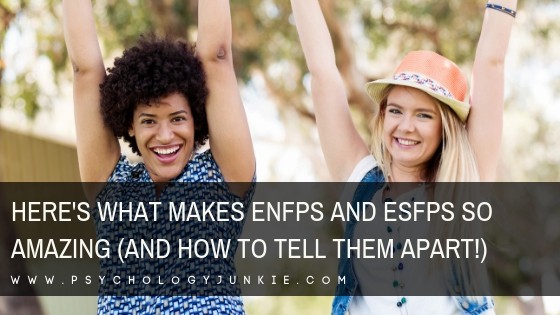The Myers-Briggs® Personality Type of Your Ideal Romantic Partner
Have you ever wished that you could magically identify the type of person that suits you best? Do you feel like you know the overall vibe of the type of person you “click” with but you don’t know how to define it? While some typologists point to a best fit type pairing for relationships (for example, INFPs should marry ENFJs, ENTPs should marry INFJs, etc,.) we don’t promote specific pairings because there are so many varieties of individuals within each type. We believe that compatibility depends largely on your values, tastes, and many other very specific personal things. Today we’re going to look at some of the personality preferences you might be looking for and help you narrow down which types you might find those personality characteristics in! While this article is framed in the context of a romantic relationship, these same qualities could apply to friendships! Let’s get started!
Not sure what your personality type is? Take our new personality questionnaire here. Or you can take the official MBTI® here.

Before Reading:
Keep in mind that everyone has a thousand nuances and unique details that personality type simply can’t pinpoint. Personality type is a broad brush technique of understanding someone; but it does not explain everything. One week you may wish you had a Sensing-Judging style partner, and the next week you might be wishing your partner had more Intuitive-Perceiving qualities. When you fall in love, compatibility charts and articles about your ideal match will fly out the window in most cases. Most of the time, we learn to love and accept our partners for who they are, even if they aren’t every single perfect thing we may have dreamed of (none of us are, are we?). Each personality type is just as valuable and important as the rest.
Estimated reading time: 9 minutes
Intuitive-Perceiving Partners
Do you crave someone who is always bursting with ideas? Do innovation, imagination, and non-conformity turn you on? If so, then you should date an NP type (ENFP, ENTP, INFP, or INTP)
Extraverted Intuitives are more interested in what could happen than what is happening. If you want to brainstorm possibilities with someone or debate unusual theories or ideas you should get together with an NP type. These types don’t mind thinking outside the box, hypothesizing, or getting creative and imagining wild and original activities or opportunities. If you’re someone who enjoys spontaneity, surprises, and dealing with multiple possibilities at once, then these types are a good fit for you.
Potential roadblocks: These types can get so busy trying things in new ways that they over-complicate matters unnecessarily. Instead of trying a simple, traditional solution to a problem they may test and experiment with other methods and create more trouble than necessary. They also tend to rebel against day-to-day tasks and anything mundane or repetitive. This can change when they hit their ‘30s however and develop a higher tolerance for routine.
Read This Next: Here’s What It’s Like Inside the Mind of an ENFP, ENTP, INFP, or INTP
Intuitive-Judging Partners

Do you crave someone who has an insightful eye into people and situations? Do intense, visionary, big-picture people excite you? If so, then you should date an Intuitive-Judging type (INFJ, INTJ, ENFJ, or ENTJ)
Intuitive-Judging types are the people you need if you like to dive into the deeper waters of life. Want to explore the meaning of life, the concept of love, the truth or falsehood of various religions? An Intuitive-Judger won’t mind meeting you in these conversations. They are naturally fascinated by concepts, theories, and possibilities that lie beyond the tangible world of the five senses. If you enjoy a partner who asks penetrating questions, looks for depth, and fills their language with symbolism and imagery then this partner is an excellent choice.
Potential roadblocks: These types can get bored and tune out of more shallow conversation topics. Even the deepest thinkers occasionally like to talk about the smaller details of their day and Intuitive-Judgers have a hard time staying engaged when this is happening. They also like having a plan and tend to lead structured lives. If you’re someone who wants to live more spontaneously then there can be clashes between the two of you at times.
Read This Next: Here’s What It’s Like Inside the Mind of an INFJ, INTJ, ENFJ, or ENTJ
Sensing-Perceiving Partners

Do you crave someone who is energetic, fun-loving, and adventurous? Do quick-witted people who live for today turn you on? If so, then you should date a Sensing-Perceiving type (ESFP, ESTP, ISFP, or ISTP)
Sensing-Perceiving types are focused on the here and now more than any of the other personality types in the Myers-Briggs system. They enjoy a lot of external stimulation and activity, and notice the world around them in higher detail than most types. The sounds, tastes, and textures of life entice them; good food, good drink, as well as rich and immersive experiences. Sensing-Perceivers are highly realistic and practical and appreciate things that can be tested in a physical way. While they might in some ways look similar to NP personality types, they are more focused on the present moment and what’s real than NPs, who focus more on formulating hypothesis and dealing with ideas.
Potential roadblocks: Sensing-Perceivers can be so focused on real, verifiable data that they grow weary of conversation that veers around theoretical topics. If you want to enjoy complex discussions about abstract concepts then these types tend to have less tolerance for this than Intuitives would (although they may enjoy it in small spurts). They also tend to be impulsive and, especially when they’re younger, may jump into new situations or activities without looking at the long-term consequences. They tend to get better at this as they reach their 30s and beyond.
Read This Next: Here’s What It’s Like Inside the Mind of an ESFP, ESTP, ISFP, or ISTP
Sensing-Judging Partners

Do you crave someone who is steady, grounded, and dependable? Do detail-oriented, down-to-earth people make you feel happiest? If so, then you should date a Sensing-Judging personality type (ISFJ, ISTJ, ESFJ, or ESTJ)
Sensing-Judging types have rich, vivid memories related to their favorite people, details, and events. While some types are constantly chasing after new experiences, Sensing-Judgers preserve their favorite memories and traditions and revisit them again and again. Thus they tend to have a more routine, structured life that revolves around their favorite activities and people. If you’re in a relationship with a Sensing-Judging type, chances are they’ll notice all the special details about your relationship together. You’ll revisit the restaurant you ate at on your first date, and you might notice old movie ticket stubs from other dates in their dresser drawers. Because these types think things through a great deal before taking action (especially ISxJs) they probably won’t get into a relationship with you unless they see a future together. A life that is consistent as well as richly meaningful appeals to this type. If you crave a partner who cares about the details of life and is consistent and practical then this might be the best partner for you.
Potential roadblocks: These types tend to get nervous with spontaneity or lack of direction. If you’re the type of person who craves spontaneity or flexibility then you might feel a little stifled with an SJ type. If you don’t care about the finer details of life you might also be in for some relationship hiccups as well. Sensing-Judgers tend to take meticulous care of their homes and possessions, so if you’re somebody who doesn’t prioritize these things you might end up clashing over dirty dishes left out or another similar situation.
Read This Next: Here’s What It’s Like Inside the Mind of an ISFJ, ISTJ, ESFJ, or ESTJ
Feeling-Perceiving Partners

Do you crave someone who follows their heart over following the crowd? Are you attracted to people who have rich and complex understandings of the world and don’t mind marching to the beat of their own drum? If so, then you should date a Feeling-Perceiving personality type (INFP, ISFP, ENFP, or ESFP)
Feeling-Perceiving personality types strive to live authentic, compassionate, and harmonious lives. They have their own individual code of ethics and they hold to it tightly, even while on the outside they may appear tolerant and easy-going. While they crave harmonious connections with others, it’s more important to FPs to live in alignment with their values. If you want a partner who lives with authenticity and thinks deeply about issues of morality, identity, and individual freedoms then this is an excellent partner for you.
Potential roadblocks: These types tend to feel things deeply on an internal level, but they may not express their feelings outwardly very readily. Being in a relationship with an FP can be confusing if you’re someone who externalizes your feelings and looks for obvious emotional feedback in return. Feeling-Perceivers don’t often express their inner emotional experiences until they’ve had a lot of time to process what’s going on.
Read This Next: How You Use Introverted Feeling, Based On Your Personality Type
Feeling-Judging Partners

Do you crave a partner who exudes friendliness and consideration? Do you like people who take care of other people’s needs and place a high value on tactfulness and harmony? If so, then you should date a Feeling-Judging personality type (ESFJ, ENFJ, ISFJ, or INFJ)
Feeling-Judging types easily notice the moods and emotions of the people around them and they place a high value on playing nicely with others. Making people feel appreciated and taken care of is something they prioritize, often more than they prioritize taking care of themselves. If you like a partner who exudes friendliness and good manners, then an FJ type will certainly put you at ease. Just be sure that communication is as open as possible! These types want to have intimate and emotionally authentic relationships with others and get nervous when they don’t know where their partner stands on things.
Potential roadblocks: FJ types need to have regular heart-to-heart conversations with their partners. If you’re someone who keeps your feelings close to the chest, chances are this will drive the Feeling-Judger a little batty. On top of that, FJs like knowing what to expect and having a clear plan for the future. If you want a more spontaneous lifestyle then you may clash with them over your need for flexibility and their need for a plan.
Read This Next: Why INFJs, ISFJs, ENFJs, and ESFJs Struggle to Let Go of Bad Things
Thinking-Judging Partners

Do you crave a partner with a logical, pragmatic frame of mind? Do you like people who are direct, decisive, and organized? If so, then you should date a Thinking-Judging personality type (ESTJ, ENTJ, ISTJ, or INTJ)
Thinking-Judging types are excellent planners who are energized by reaching goals and talking out decisions in a logical way. These types enjoy problem solving, critiquing, and creating clarity through order and structure. When it comes to relationships, you can usually count on them to be straightforward and authentic. Especially with ESTJs and ENTJs, they often say “what you see is what you get.” These types value dependability and so they’re likely to show up on time for dates, be there when you need advice or help, and be a logical sounding board for any problem you’re facing.
Potential roadblocks: Tactfulness tends to be trickier for these types than certain other types (we’re looking at you, FJs). TJs like speaking in a blunt, forthcoming way and dislike sugarcoating things. More sensitive people can find them too brusque and critical. Types who crave more emotional connection may find it difficult to get them to verbalize their deeper feelings. Keep in mind that even though TJs may appear harsh, they often have very kind, thoughtful hearts underneath. The way they see it, honesty and directness is efficient and therefore, kind. They aren’t trying to be harsh many of the times that people perceive them as harsh (unless they’re immature). They just don’t effuse emotional openness and warmth the way Feeling types might.
Read This Next: Things You’d Never Dream of Doing, Based On Your Myers-Briggs® Personality Type
Thinking-Perceiving Partners

Do you crave a partner who is as obsessed with truth and understanding as you are? Do you like people who are analytical, curious, and precise? If so, then you should date a Thinking-Perceiving personality type (ISTP, INTP, ESTP, or ENTP)
Thinking-Perceiving types are driven to understand how things work and they use truth as a guiding principle in all their decisions. These types have the patience to dig into a plethora of data and find the connections, categories, loopholes, and inconsistencies. Their minds are like grids with labels at all the grid coordinates. The closer you look at their mind, the finer the grid becomes and the more precise the categories within the grid become. TPs strive to collect as much information about their chosen subjects as possible. When it comes to relationships, they enjoy discussing theories and systems, debating issues from various positions, and creating warmth and honesty with their partner.
Potential roadblocks: Thinking-Perceivers value truth and analytical thought but they struggle to maintain the emotional sensitivity that some people crave. Underneath their logical exterior, TPs often have a warm, deeply caring side, but they don’t always know how to show it. They also don’t like being tied down by a lot of schedules and rules, so if you’re someone who craves a very clear plan for your relationship and likes things predictable and routine, this relationship might be trying for you.
Read This Next: The Biggest Relationship Fear of Every Myers-Briggs® Personality Type
What Are Your Thoughts?
What type of person do you enjoy connecting with? Do you have any pointers or insights for fellow readers? Share your thoughts in the comments!
Find out more about your personality type in our eBooks, Discovering You: Unlocking the Power of Personality Type, The INFJ – Understanding the Mystic, The INTJ – Understanding the Strategist, and The INFP – Understanding the Dreamer. You can also connect with me via Facebook, Instagram, or Twitter!










I do not have any particular type in mind for a relationship, friendship or romantic; however, I think it would be fun to date a healthy, mature (!) Sensing-Perceiver, Thinking-Judger, why not a Sensing-Thinking type (with which I am guaranteed to share 2 cognitive functions)…? The main fun for me would be studying the way that the other person’s cognitive functions interact in order to get a clearer picture of how they or their type tends to think. The actual interactions with the other people would be the tertiary fun. Seeing how long it takes them to realize that I am studying them would be the secondary fun – – until I have to explain to them that I value them as people, which would likely involve talking about feelings. I say “talking about feelings” but “stammering with long pauses while I try to identify and accurately guess my emotions and feelings towards a person” is more accurate.
Regardless of type, relationships require semi-regular maintenance, which takes time and effort.